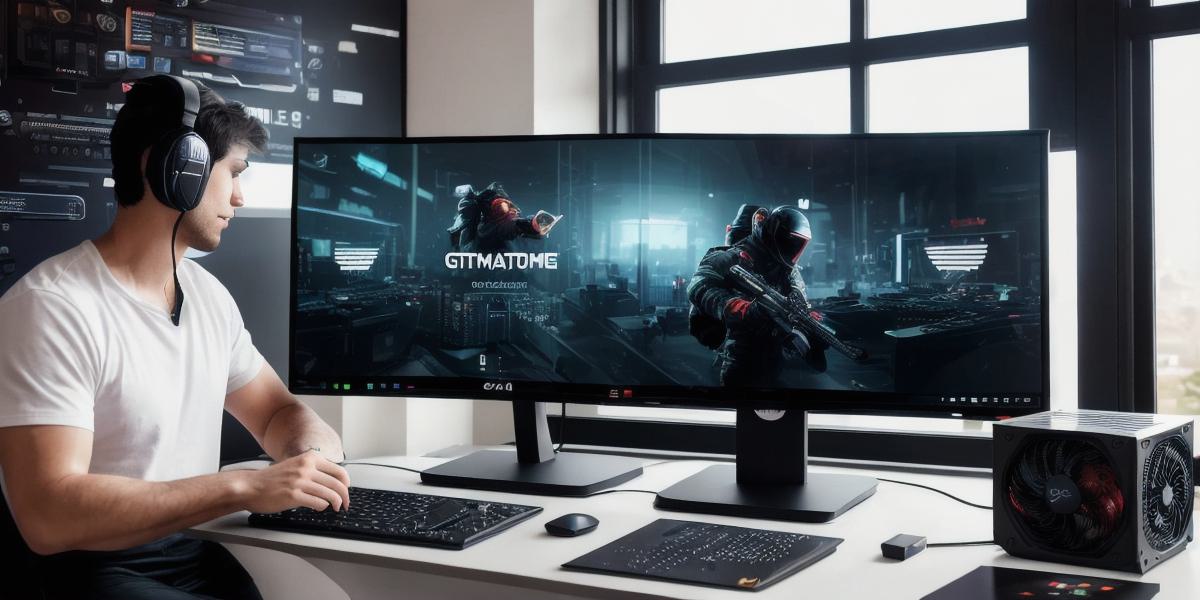Introduction:
Gaming is a popular pastime for millions of people worldwide, and one of the most important factors that can affect your gaming experience is the frame rate (FPS) you get. While some believe that CPU is more important than GPU in determining FPS, others argue that GPU plays a crucial role. In this article, we will explore both sides of the argument and provide you with valuable insights to help you make an informed decision.
The Role of CPU vs GPU:
CPU and GPU are two of the most critical components of a computer system, and they work together to deliver an exceptional gaming experience. CPU is responsible for handling the computational tasks of the computer, while GPU handles the graphical tasks. The more powerful the CPU, the better the performance, but it can’t handle all the graphical tasks on its own.
On the other hand, GPU is specifically designed to handle graphical tasks and deliver smooth gameplay. A high-end GPU will have many cores, which allows it to process more data faster than a CPU. This translates into higher FPS, making it possible to enjoy gaming without stuttering or lagging.
Comparing the Impact of CPU vs GPU on FPS:
To understand how CPU and GPU affect FPS, let’s consider a simple example. Suppose you have a computer with a powerful CPU and an average-performing GPU. When playing games that require heavy graphical workloads, your CPU will struggle to keep up with the demands of the game. As a result, your FPS will drop significantly, making it difficult to enjoy the game.
On the other hand, if you have a powerful GPU with an average-performing CPU, your computer will handle the graphical tasks flawlessly, delivering smooth and consistent FPS. The only limitation is that your CPU might not be able to keep up with the demands of other applications running on your computer, which could lead to slower performance overall.
Factors Affecting GPU Performance:
While GPU is primarily responsible for delivering FPS, there are several factors that can affect its performance, including the quality and resolution of your monitor, the type of game you’re playing, and the specifications of the other components in your computer system.
For example, if you’re playing a game with high-quality graphics, your GPU will have to work harder to deliver smooth FPS. On the other hand, if you’re playing a game with lower resolution, your GPU won’t have to work as hard, resulting in higher FPS.
Expert Opinion:
To get a better understanding of how GPU affects FPS, we asked an expert gamer and computer hardware specialist, "Does GPU give FPS?" Here is what they had to say:
"Yes, GPU does give FPS, but it’s not the only factor that determines it. The quality of your monitor, the specifications of other components in your system, and the type of game you’re playing can also affect FPS. However, if you have a high-end GPU, you’ll see a significant improvement in FPS."
Summary:
In conclusion, while both CPU and GPU play important roles in delivering an excellent gaming experience, GPU has a more significant impact on FPS. The quality of your monitor, the type of game you’re playing, and the specifications of other components in your system can also affect FPS. If you want to improve your gaming experience, investing in a high-end GPU is one of the best things you can do.
FAQs:
- Does CPU or GPU give more FPS?
CPU and GPU both contribute to FPS, but GPU has a more significant impact on it. - How does GPU affect FPS?
GPU handles graphical tasks and delivers smooth gameplay, which translates into higher FPS. - What are the factors that affect GPU performance?
The quality of your monitor, the type of game you’re playing, and the specifications of other components in your system can affect GPU performance.



